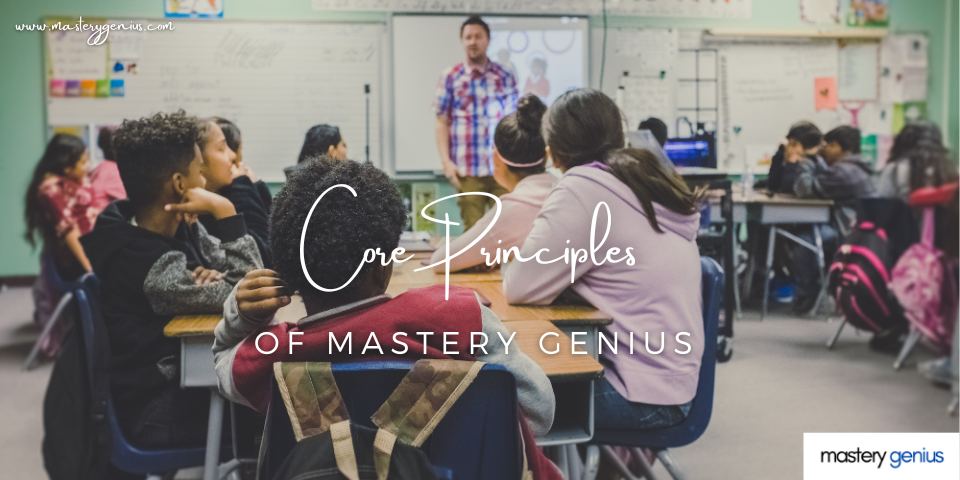1. Every child is an individual, and learning is a unique journey.
No two children are the same. We've heard all too often (and maybe it happened to us, too) about how a student was a high performer in high school, then goes off to college and struggles. Students with a 4.0 GPA in college may go off to a more prestitigous law school only to struggle. And even for our youngest learners, the level of rigor in schools varies so much that comparing your child to the peers in their class is not a healthy comparison.
All students have learning strengths and weaknesses, both on broad subjects (math vs reading) and also on specific topics (math facts vs. geometry). Don't stress too much about where your child is academically, just help them to make progress at their own pace.
America's traditional education system is oftentimes at odds with this belief that all students are unique. We place students in the same grade regardless of their academic ability, and we regularly teach kids the same topics even if some in the class have already mastered that topic. Even worse, we often move on from a topic even if a child hasn't mastered a prerequisite topic.
Teaching to the whole group is never the most effective method for education, so most schools now implement small group learning, especially in the lower grades. But we can do even better. Mastery Genius is built on a principle that schools cannot easily implement: individualized learning.
2. Software can be more effective and more efficient for learning.
If we believe that individualized learning is the ideal form of learning, we need a method by which students can easily access individualized learning on a daily basis. Since schools cannot generally provide this, individualized learning either falls on learning centers, private tutors, parents, or software.
Of all of those options, software is the most effective and the most efficient method. From an effectiveness standpoint, software enables app creators like us to specify learning objectives for your child down to the exact objective they need to work on. From an efficiency standpoint, it simply costs less and requires less time from parents than alternative options.
Not all children like learning via software. We certainly understand that some people need the human touch. But for kids inclined to use technology, embrace it for learning so they can make gains as quickly as possible. And it may be worth revisiting periodically to see if your child's inclinations change.
3. Anyone can master anything.
Too frequently we hear adults saying they are not good at math or can't learn a new language. While it does take time and practice to master a new skill, in order to help our children succeed, we must adopt the mindset that we can be good at anything.
From a growth mindset vs. fixed mindset perspective, Mastery Genius is all in on the growth mindset. We don't have to be good at things now, and we don't have to be the best in world either. Slow and steady, we can make improvement, and with enough practice and exposure, any child can learn anything. New struggles will arise, but old struggles will be a distant memory.
Conclusion
As you address learning struggles with your child or strive to help them get ahead academically, consider using Mastery Genius or some other mastery-based online learning software. We would love to be a part of their individualized learning journey!


